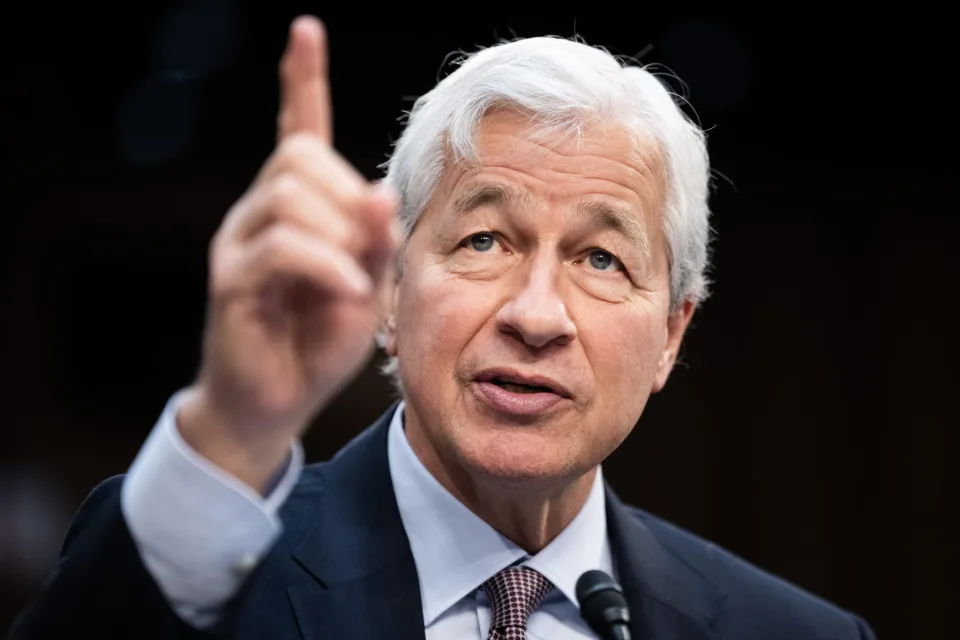
With over 240,000 staff under his watch and $32 trillion in assets a day to safeguard, it’s no wonder Jamie Dimon runs a tight ship at JPMorgan Chase.
It’s perhaps why America’s biggest bank, which posted record profits for 2023, paid its CEO $36 million for his work last year, having navigated the business through the regional banking crisis and acquiring First Republic Bank.
On top of that, financial institutions have had to weave a path through uncertainty around the base rate, inflation, unemployment figures and rumors of a recession.
But New York City–based JPMorgan didn’t come out on top by accident. Its leadership has a track record of analyzing a range of possible economic outcomes to be prepared for even the most unlikely outcome.
In his 2023 letter to shareholders, for example, Dimon said this included planning for a “very broad range of interest rates, from 2% to 8% or even more, with equally wide-ranging economic outcomes.”
In all of these cases, courtesy of planning, Dimon said his “company would continue to perform at least okay.”
“Importantly, being prepared means we can continue to help our clients no matter what the future portends,” he added.
The ‘OODA loop’
Yet this preparedness isn’t just a habit embedded into the culture at JPMorgan, it’s a leadership tactic Dimon picked up from watching people in the military.
In his letter released yesterday, Dimon began the section on management lessons by outlining the benefits of the “OODA loop.”
He explained: “The military, which often operates in extreme intensity of life and death and in the fog and uncertainty of war, uses the term ‘OODA loop’ (observe, orient, decide, act—repeat), a strategic process of constant review, analysis, decision making, and action.
“One cannot overemphasize the importance of observation and a full assessment—the failure to do so leads to some of the greatest mistakes, not only in war but also in business and government.”
Completing a full assessment is “critical,” Dimon noted, for both businesses and governments.
In business, the Harvard alumnus wrote, “you have to understand your competitors, their distribution, their economics, their innovations, and their strengths and weaknesses.”
On a geopolitical scale, this task is a little more complex.
The Wall Street titan noted elsewhere in his letter that the West had “slept” while China quietly established itself as a global superpower, with control over certain supplies necessary for America’s economic and national security.
However, Dimon said there was no point “crying over spilt milk” and that policymakers needed to “fix” the issue—and the OODA loop may help.
He wrote: “For countries, you need a thorough grasp of their economies, strengths and weaknesses, population and education, access to raw materials, laws and regulations, history and culture.
“Research, data and analytics should be at a very detailed level and constantly reassessed. Only after you complete this diligent study can you start to make plans with a high degree of success.”
‘BS corporate speak’
The 68-year-old has always had a reputation for being a no-nonsense leader who is frank about his personal beliefs—be it politics, careers, or personal finance.
So it’s perhaps no surprise that Dimon doesn’t subscribe to corporate jargon, explaining there’s a reason why he rarely rolls out a typical management tactic by talking about his vision.
“The reason I’ve always hesitated to talk about ‘vision’ is because often it is the basic BS of corporate speak—that somehow if you impart your vision to people, they will take the mountain,” he wrote.
“What it really is all about is this: After you’ve done your full assessment and decision-making, you can then continuously educate, explain, train, simplify, propel and fight.”
Instead, Dimon took it back to military tactics by saying he wanted his team to know he was working and strategizing alongside them, saying vision “only works if people know you are in the trenches with them, if they understand the mission and if they are there side by side with your effort.”
This story was originally featured on Fortune.com